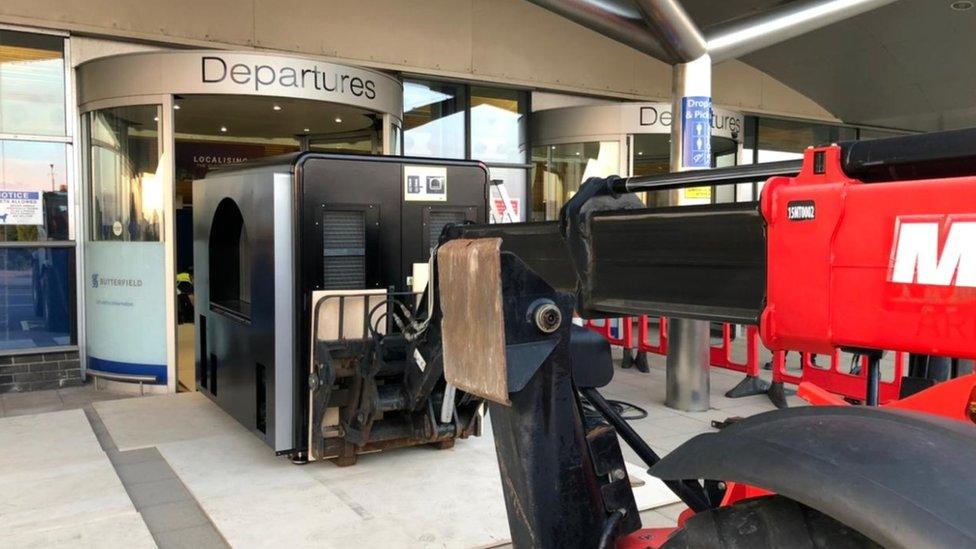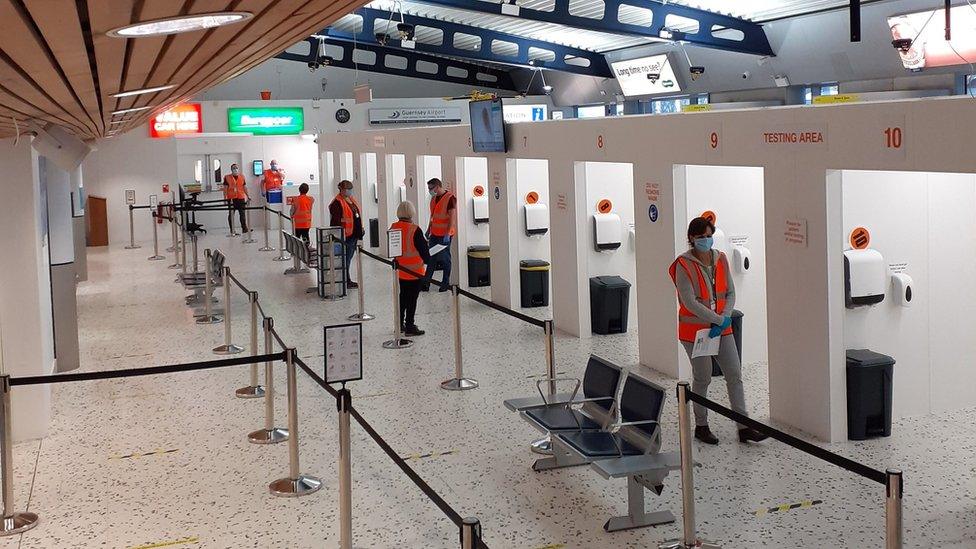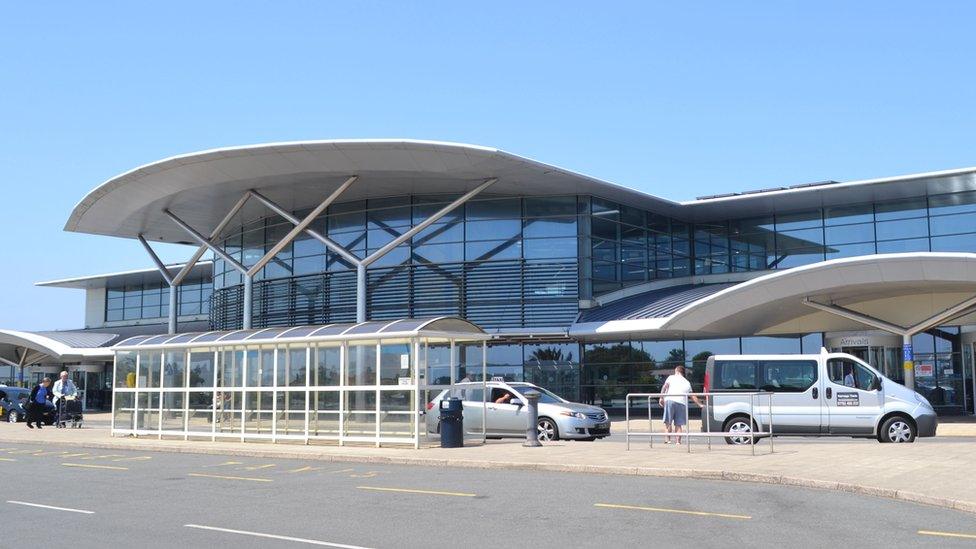First new Guernsey Airport baggage scanner arrives
- Published

Bosses at Guernsey Ports said the delivery of the first scanner was "a significant milestone"
The first of two new baggage scanners at Guernsey Airport has arrived ahead of planned border restrictions easing.
The scanners will be part of work on the airport's hold baggage system to make sure it complies with the latest security standards, bosses said.
The need for random searches of baggage will also be removed, they added.
Staff said they were aiming to ensure the scanners were up and running ahead of the planned change to coronavirus travel restrictions on 1 July.
Extensive testing
Steve Langlois, from Guernsey Ports, said the delivery of the first scanner was "a significant milestone in the project so far".
He said extensive testing and commissioning would take place before passengers' hold baggage items were processed through it.
"The project team and specialist contractors are working hard to ensure the equipment is ready ahead of the planned change in travel restrictions on 1 July, despite the enforced delays caused by the Covid-19 pandemic," Mr Langlois said.
The new equipment is part of a £12m upgrade, which includes replacing current X-ray scanners with 3D technology, which could reduce queuing time for travellers, Guernsey Ports said.
The current equipment, in use since 2004, no longer meets the requirements of the UK Department for Transport.
The airport previously said, if it was not replaced, regulators could require more manual searches to be carried out - resulting in longer check-in times, particularly at peak times.
Guernsey is currently set to return to normal travel with the UK, Jersey, Isle of Man and Republic of Ireland from 1 July.

Follow BBC Guernsey on Twitter, external and Facebook, external. Send your story ideas to channel.islands@bbc.co.uk, external.
Related topics
- Published21 May 2021

- Published22 January 2021

- Published14 May 2021
